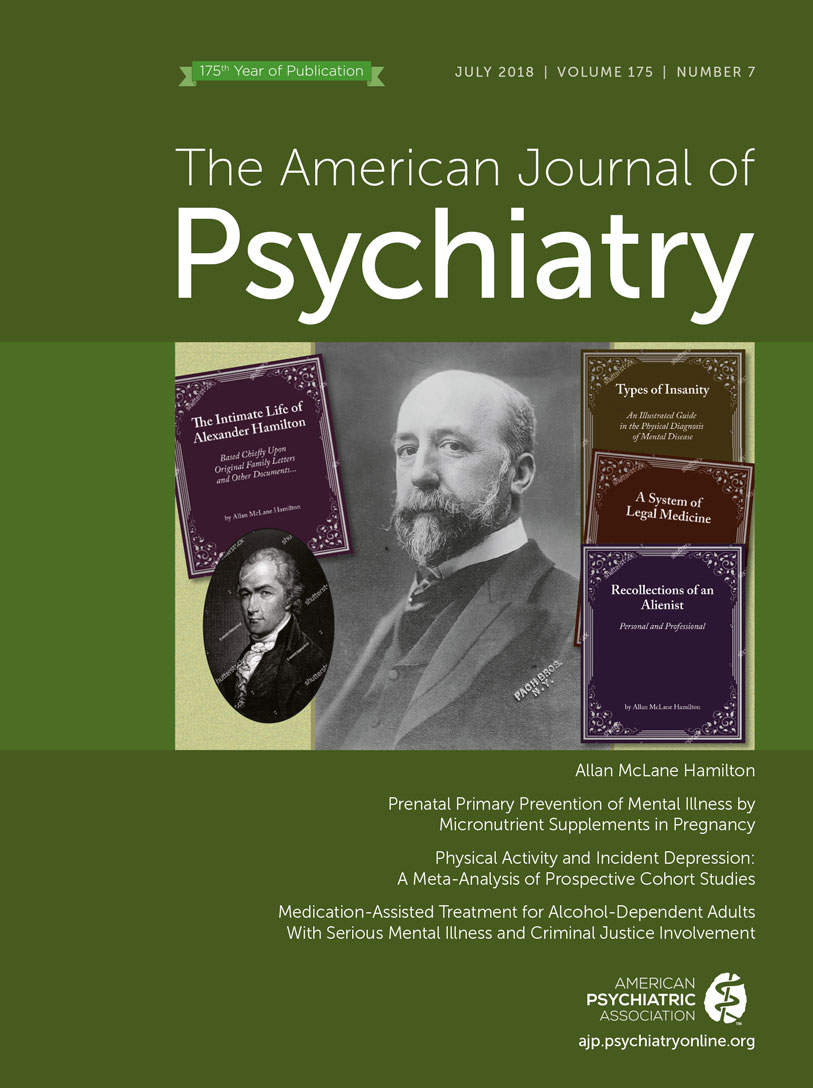Comment on the Association of Hormonal Contraception With Suicide Attempts and Suicides
to the editor: The article by Skovlund and colleagues (1), published in the April 2018 issue of the Journal, aimed to assess the risk of suicide attempt and suicide in users of hormonal contraception in a Danish nationwide prospective cohort. The authors concluded that hormonal contraception is positively associated with suicide attempt and suicide. Because this conclusion may have a worldwide impact, we would like to raise several concerns.
The authors reported that in former users of hormonal contraception, the hazard ratios for first suicide attempt (hazard ratio=3.40, 95% CI=3.11–3.71) and suicide (hazard ratio=4.82, 95% CI=1.93–12.1) (adjusted for age as underlying time, calendar year, education, polycystic ovary syndrome, and endometriosis) were substantially higher than those among current or recent users. However, the persistence of risk suggests that factors other than hormonal contraception medications are at work. The finding that the hazard ratio for suicide attempt decreased after adjusting for psychiatric diagnoses and antidepressant use to 1.58 (95% CI=1.48–1.68) is in line with this premise. The authors speculate that “mood symptoms are a known reason for cessation of hormonal contraceptive use” (1, p. 336), but the opposite can also be true: menstruation-related mood disorders may improve through the use of hormonal contraception (2).
Skovlund et al. (1) did not compare hormonal contraception to nonhormonal contraception; the lack of this comparison does not allow for attributing the association specifically to hormonal contraception. Keyes et al. (2), whose article is not referenced by Skovlund et al. (1), reported substantially lower odds of high levels of depressive symptoms (evaluated by the Center for Epidemiologic Studies Depression Scale), lower odds of past-year suicide attempt, and lower mean levels of depressive symptoms among women using hormonal contraception (estrogen/progesterone combination formulations as well as progestin-only contraceptives) compared with women using highly or less effective nonhormonal contraception or no contraception (6,654 sexually active U.S. nonpregnant women, ages 25–34 years, assessed across four waves of the National Longitudinal Study of Adolescent Health).
No specific list of psychiatric diagnoses as covariates are provided (e.g., no mention of substance use disorders, as indicated by ICD-10 codes F10–F19, or of mood disorders, indicated by codes F30–F39). Moreover, subthreshold psychiatric disorders may be as disabling as full-blown disorders. Nondiagnosed mental disorders, such as substance use disorders, suicidal ideation and plans, and lifestyle and familial factors, not entered into a registry are known risk factors for suicide attempt and suicide; a quantitative bias analysis (see Figure S3 in the online data supplement that accompanies the original article [1]) cannot reject with confidence the contribution of these major risk factors for suicidality.
One of the usually overlooked major and widespread risk factors for suicide attempt and suicide is smoking (3, 4), which appears to be more prevalent among users of hormonal contraception than among nonusers. The suicide rate adjusted for smoking has been found to be similar between ever- and never-users of hormonal contraception (5).
1 : Association of hormonal contraception with suicide attempts and suicides. Am J Psychiatry 2018; 175:336–342Link, Google Scholar
2 : Association of hormonal contraceptive use with reduced levels of depressive symptoms: a national study of sexually active women in the United States. Am J Epidemiol 2013; 178:1378–1388Crossref, Medline, Google Scholar
3 : Tobacco use and suicide attempt: longitudinal analysis with retrospective reports. PLoS One 2015; 10:e0122607Crossref, Medline, Google Scholar
4 : Cigarette smoking and risk of completed suicide: a meta-analysis of prospective cohort studies. J Psychiatr Res 2012; 46:1257–1266Crossref, Medline, Google Scholar
5 : Mortality among contraceptive pill users: cohort evidence from Royal College of General Practitioners’ Oral Contraception Study. BMJ 2010; 340:c927Crossref, Medline, Google Scholar



